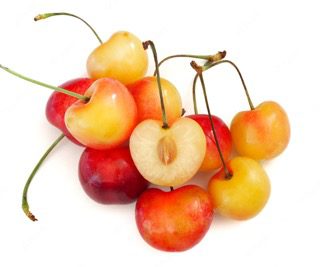

Rainier cherries, also known as white cherries, are a type of cherry with a yellow to red skin and sweet, juicy flesh. They originated in Washington State in the 1950s and are now widely grown in the Pacific Northwest and California. While rainier cherries are a safe fruit for dogs to eat, their stems, leaves, and pits are toxic and should be avoided. The fleshy part can be a healthy addition to a dog’s diet, as it contains antioxidants, anti-inflammatory compounds, fiber, vitamin C, and potassium. However, excessive consumption can cause digestive upset.
Rainier cherries contain antioxidants, anti-inflammatory compounds, fiber, vitamin C, and potassium that can benefit a dog’s overall health.
While the flesh of rainier cherries is not toxic, excessive consumption can cause stomach upset. The stems, leaves, and pits contain cyanide, which is toxic to dogs and can cause choking and intestinal obstruction.
To safely give rainier cherries to your dog, wash and remove the stem and pits. Only give the flesh in moderation as an occasional treat.
Rainier cherries are safe for dogs to eat, but their stems, leaves, and pits are toxic. Excessive consumption of the fleshy part can cause digestive upset.
To serve rainier cherries to your dog, wash and remove the stems and pits. Only give the flesh in moderation as an occasional treat. It is important to note that rainier cherries can be expensive and may not be easily accessible in some areas. As an alternative, you can offer your dog other fruits such as apples or blueberries, which are also rich in antioxidants and safe for dogs to consume.
Have you ever given your furry friend rainier cherries before? How did they react to it? Remember to always introduce new foods slowly and in small amounts to avoid any adverse reactions. And as always, speak with your veterinarian before making any significant changes to your dog's diet.